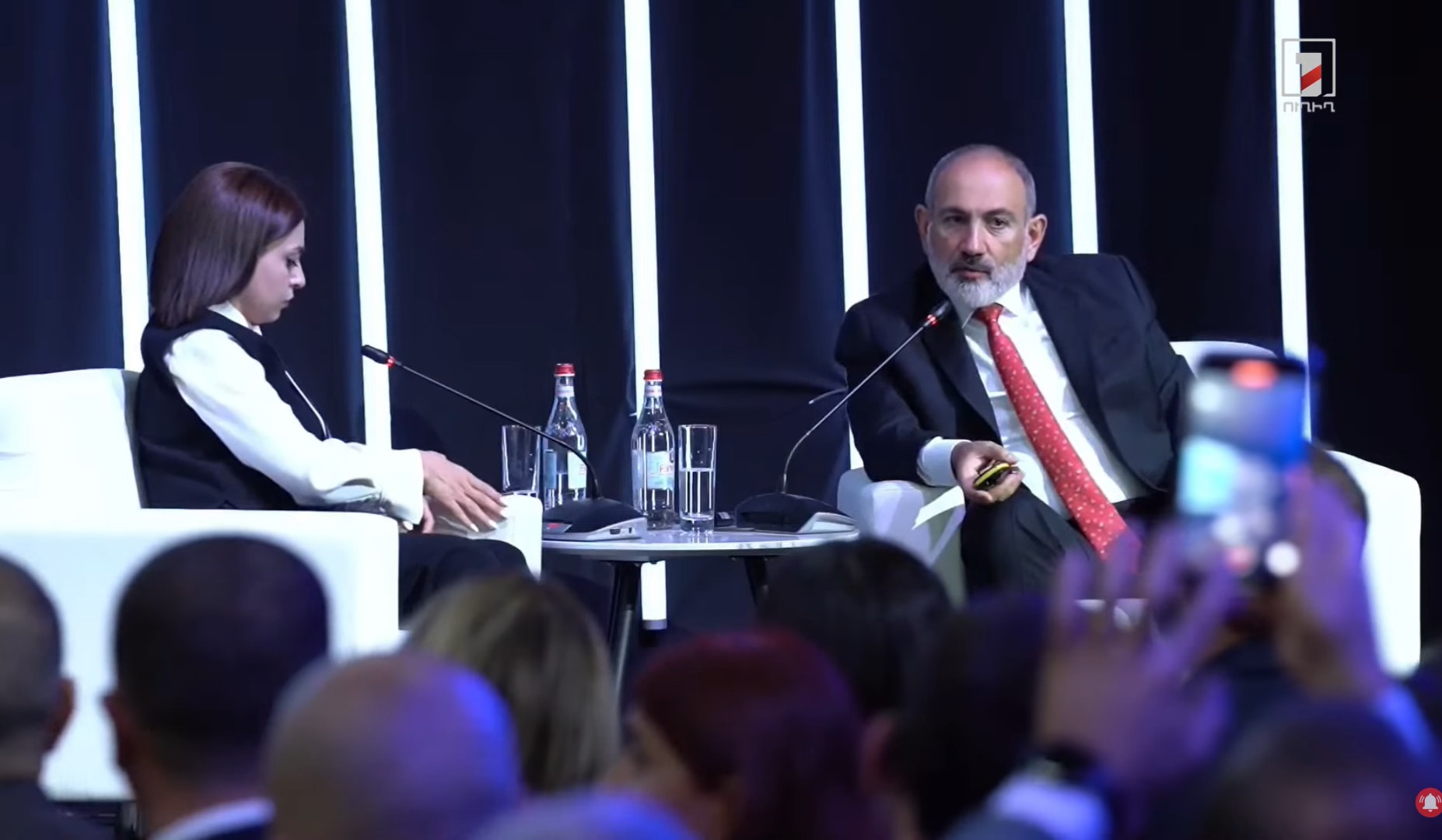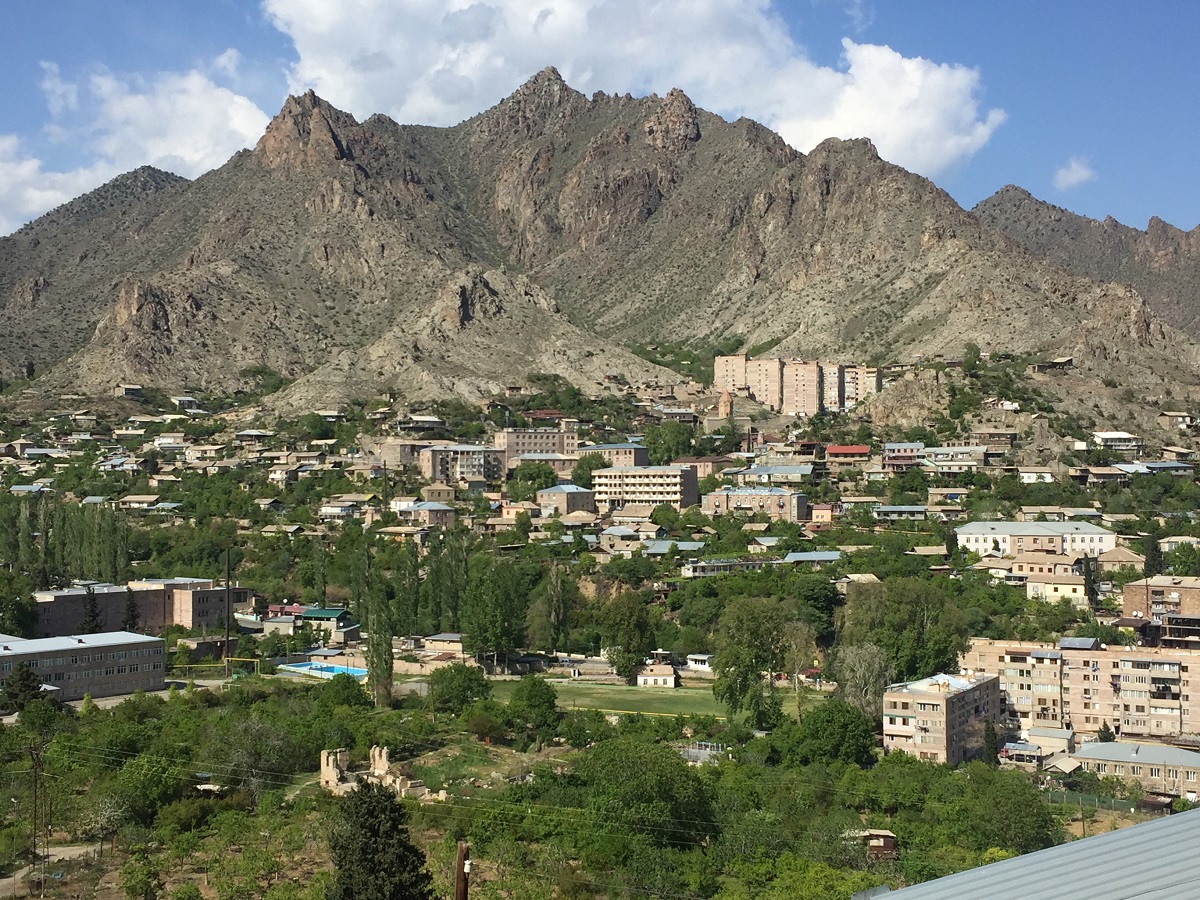'Armenia must decouple from Russia without collapse': view from Yerevan
Mirzoyan-Lavrov meeting in 2025
Yesterday, Armenian Foreign Minister Ararat Mirzoyan and Russian Foreign Minister Sergey Lavrov met in Moscow. This was their first meeting in such a format since July 2023. According to official reports, the discussions covered a wide range of topics, including bilateral relations and the establishment of peace in the South Caucasus. Following private talks and expanded negotiations, the foreign ministers held a joint press conference.
Ararat Mirzoyan described the discussions as having taken place in a “sincere, constructive atmosphere.” Sergey Lavrov characterized the negotiations as productive, noting that they had reached mutually acceptable solutions on some issues, though he did not specify which ones.
“We emphasized our commitment to the full range of agreements with Yerevan, including in the military-political sphere, formulated bilaterally and within our common integration structures,” Lavrov stated.
In response, JAMnews asked political analyst Ruben Mehrabyan whether this signals an attempt by Moscow to draw Armenia back into its orbit, particularly within the CSTO military bloc.
“These are empty words. Let’s break it down: What is Russia committed to? Can it ensure arms supplies? Of course not. Has Russia’s position changed since the events of September 13-14, 2022, when Azerbaijan invaded Armenian territory, and Russia, along with CSTO allies, failed to intervene, citing the undelimited border? Armenia froze its participation in the CSTO, and nothing has changed since. These are meaningless, empty statements with zero value,” Mehrabyan said.
The meeting was preceded by two significant developments: the Armenian government approved a referendum on joining the EU, and the Armenia-U.S. Strategic Partnership Charter was signed in Washington. However, Mirzoyan emphasized that his visit to Moscow had been in preparation for about three months and was delayed due to “technical reasons.”
- ‘Don’t look for black cat in dark room’: Why Pashinyan didn’t go to Russia
- Russia says door open for Armenia’s return to CSTO
- Op-ed: “Russia wouldn’t view withdrawal from the Armenia-Iran border crossing as a red line”
Bilateral фgenda: from economy to сonsular presence
The Armenian Foreign Minister highlighted the economy as a key component of cooperation with Russia:
“Here, the numbers speak for themselves. For Armenia, trade and economic cooperation within the EAEU remains one of the factors influencing economic growth and the realization of foreign trade potential.”
When asked how Armenia’s government plans to balance potential EU membership with its existing participation in the Russia-led EAEU, Mirzoyan responded:
“There are no timelines or specific mechanisms being discussed at this stage. I want to remind you that this is a civil society initiative. Organizations collected the 50,000 signatures required under Armenia’s constitution, which automatically transformed this initiative into a draft law for parliamentary debate. The government has approved this draft. What happens next, we’ll figure out as we go. This law implies nothing beyond that. If such a question arises, we’ll need to decide how to proceed.”
Lavrov informed journalists that he discussed with his Armenian counterpart the possibility of expanding mutual consular presence. Russia has long expressed interest in opening a consulate in Armenia’s Syunik region, located on the southern border.
“We believe that expanding diplomatic representations and increasing their number is in the interests of both our countries,” the Russian Foreign Minister stated.
In the context of strengthening bilateral relations, the ministers emphasized the importance of maintaining an intensive political dialogue. Lavrov confirmed his acceptance of Mirzoyan’s invitation to visit Yerevan.
What Yerevan is unhappy about
Ararat Mirzoyan emphasized that Armenia has always adhered to the principle of open and constructive dialogue:
“We hope that the Russian side will continue to consider all aspects of the ongoing situation, avoiding unilateral interpretations, which, unfortunately, we have observed recently, in the past few days.”
He did not specify what he was referring to, but it is presumed that the minister was alluding to Russian media coverage of the “Zangezur Corridor” issue—an extraterritorial road demanded by Azerbaijan. Armenian authorities felt that narratives aired on a Russian state channel undermined Armenia’s sovereignty and territorial integrity. In response, Armenia issued a note of protest to the Russian ambassador.
Mirzoyan mentioned that he and Lavrov “discussed the situation in the media sphere and ways to create a more favorable informational environment.”
Lavrov replied that Russia would take measures to ensure that the media are not used “by those ill-disposed toward our countries to turn normal working relations into something complicated.”
Moscow’s position on Armenia-Azerbaijan conflict resolution
Journalists asked Sergey Lavrov how Russia could facilitate the normalization of relations between Armenia and Azerbaijan, given the alignment and, at times, convergence of Moscow’s and Baku’s positions. Lavrov assured that Russia does not take sides in the matter:
“We are engaged in the process of normalizing relations between Yerevan and Baku out of our deep interest in ensuring that our brotherly peoples live in peace and good neighborliness.
We have strategic partnerships and alliances with both Armenia and Azerbaijan. We are deeply invested in this. Unlike countries far from the South Caucasus, which are pushing an entirely different agenda aimed at maintaining tension here for as long as possible. They believe that under such tension, they can more effectively advance their geostrategic interests.”
He expressed Russia’s willingness to assist Yerevan and Baku “if they are interested, in all directions.” Specifically, he mentioned support in drafting provisions for a peace treaty, border delimitation, and the unblocking of transportation routes.
Ararat Mirzoyan emphasized that Armenia is making efforts to establish long-term peace “despite all the difficulties and challenges.”
Political analyst Ruben Mehrabyan
Political analyst Ruben Mehrabyan believes it is difficult to specify what “mutually acceptable solutions” were reached during the talks between Ararat Mirzoyan and Sergey Lavrov. However, he is confident these decisions align with Armenia’s interests. The analyst argues that “Russia is morally and politically bankrupt,” which is why it avoids sudden moves that could cost it everything.
Mehrabyan asserts that Yerevan should pursue policies that allow it to manage Russia’s potential reactions to Armenia’s future steps. He specifically refers to exiting Russian-led structures like the CSTO military bloc and the Eurasian Economic Union.
“This might happen very soon. A new world is emerging, and Armenia has no time to delay. These consultations are necessary to expedite the process. After all, Russia will eventually adapt to these rapid changes. Armenia’s task is to make it clear to Russia that we don’t share a border with you, we’re not acting against you, and we sympathize if you feel otherwise,” Mehrabyan stated.
The analyst emphasizes that Moscow’s “jealousy” must be neutralized and describes Armenia’s ties with Russia as “anachronistic”:
Disintegration is inevitable. It can happen in two ways: with or without collapse. Maintaining contact with Russia allows this process to be managed and avoids collapse. These meetings can be seen as a form of therapy, necessary for both Armenia and Russia.
Mehrabyan warns that Russia may react negatively, potentially imposing economic restrictions or even taking irrational actions, “hurting itself just to hurt Yerevan.”
He also interprets Lavrov’s statements as evidence that Russia still claims the role of mediator in the Armenia-Azerbaijan conflict, but “this no longer works.” Issues are now resolved through bilateral negotiations between Yerevan and Baku, without Moscow.
Regarding Russia’s desire to open a consulate in Syunik, Mehrabyan argues it is unnecessary for Armenia:
“This is Russia’s whim, which Armenia is under no obligation to fulfill.”
Mirzoyan-Lavrov meeting in 2025
Mirzoyan-Lavrov meeting in 2025






















